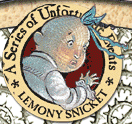
Nothing Runs Like a Deere or Smells Like a John (except maybe a scheming trollop)
A Short History of Tractors in Ukrainian
Marina Lewcycka
Penguin Books
I LOVE the title of this book. A Short History of Tractors in Ukrainian is a story about suffering, family, survival, and surviving your family. When elderly Nikolai announces to his girls that he has decided to marry a buxom Ukrainian divorcee less than half his age, Nadia and Vera work to set aside their differences to save their father from the clutches of the scheming trollop. Unfortunately, they don't work fast enough and the voluptuous Valentina wins her man. Chaos ensues.
One broken-down Rolls Royce, a used Land Rover, and a Lada later, Nikolai is convinced by his daughters to give up on his marriage (and on his wife's torpedo-like boobs) and ask for a divorce. His only solace is his life's work -- the history of tractors -- which he reads aloud to anyone who will listen.
While I did enjoy aspects of this novel (I think the author has interesting things to say about learning to live in the present and appreciating the immigrant experience in all its diversity,) I hated the tractor bits. They reminded me of the whaling chapters in Moby Dick. I'm quite sure that I'm failing to grasp the underlying meaning of an important literary device, but in this reader's opinion, the book would have been much better (or at least shorter!) without them. Two and a half John Deeres.
A Short History of Tractors in Ukrainian
Marina Lewcycka
Penguin Books
I LOVE the title of this book. A Short History of Tractors in Ukrainian is a story about suffering, family, survival, and surviving your family. When elderly Nikolai announces to his girls that he has decided to marry a buxom Ukrainian divorcee less than half his age, Nadia and Vera work to set aside their differences to save their father from the clutches of the scheming trollop. Unfortunately, they don't work fast enough and the voluptuous Valentina wins her man. Chaos ensues.
One broken-down Rolls Royce, a used Land Rover, and a Lada later, Nikolai is convinced by his daughters to give up on his marriage (and on his wife's torpedo-like boobs) and ask for a divorce. His only solace is his life's work -- the history of tractors -- which he reads aloud to anyone who will listen.
While I did enjoy aspects of this novel (I think the author has interesting things to say about learning to live in the present and appreciating the immigrant experience in all its diversity,) I hated the tractor bits. They reminded me of the whaling chapters in Moby Dick. I'm quite sure that I'm failing to grasp the underlying meaning of an important literary device, but in this reader's opinion, the book would have been much better (or at least shorter!) without them. Two and a half John Deeres.

